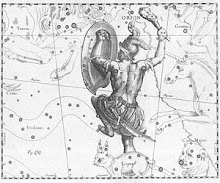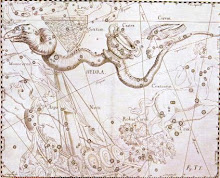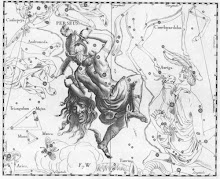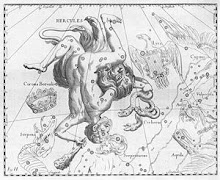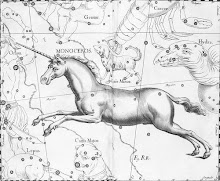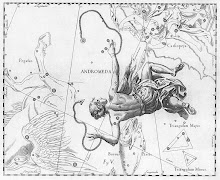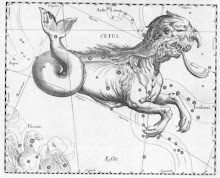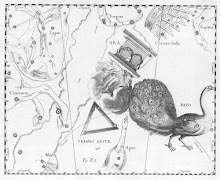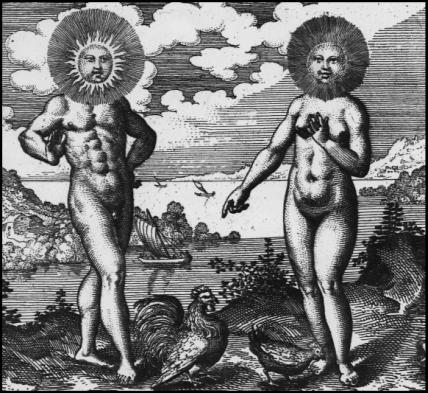Affichage des articles dont le libellé est ROSY CROSS Confessio Fraternitatis (1615). Afficher tous les articles
Affichage des articles dont le libellé est ROSY CROSS Confessio Fraternitatis (1615). Afficher tous les articles
ROSY CROSS Confessio Fraternitatis (1615).
CONFESSIO FRATERNITATIS
or
The Confession of the Laudable Fraternity
of the Most Honorable Order of the Rosy Cross, Written to All the Learned of Europe (1)
Whatsoever is published, and made known to everyone, concerning our Fraternity, by the foresaid Fama, let no man esteem lightly of it, nor hold it as an idle or invented thing, and much less receive the same, as though it were only a mere conceit of ours.(2) It is the Lord Jehovah (who seeing the Lord's Sabbath is almost at hand, and hastened again, his period or course being finished, to his first beginning) doth turn about the course of Nature; and what heretofore hath been sought with great pains, and daily labour, is now manifested unto those who make small account, or scarcely once think upon it; but those which desire it, it is in a manner forced and thrust upon them, (3) that thereby the life of the godly may be eased of all their toil and labour, and be no more subject to the storms of inconstant Fortune; but the wickedness of the ungodly thereby, with their due and deserved punishment, be augmented and multiplied.
Although we cannot be by any suspected of the least heresy, or of any wicked beginning, or purpose against the worldly government, we do condemn the East and the West (meaning the Pope and Mahomet) blasphemers against our Lord Jesus Christ, and offer and present with a good will to the chief head of the Roman Empire our prayers, secrets, and great treasures of gold.(4)
Yet we have thought good, and fit for the learned's sakes, to add somewhat more to this, and make a better explanation if there be anything too deep, hidden, and set down over dark in the Fama, or for certain reasons were altogether omitted, and left out; (5) hoping herewith the learned will be more addicted unto us, and be made far more fit and willing for our purpose.
Concerning the alteration and amendment of Philosophy, we have (as much as at this present is needful) sufficiently declared, to wit, that the same is altogether weak and faulty; yet we doubt not, (6) although the most part falsely do allege that she (I know not how) is sound and strong, yet notwithstanding she fetches her last breath and is departing.
But as commonly, even in the same place or country where there breaketh forth a new and unaccustomed disease, Nature also there discovereth a medicine against the same; so there doth appear for so manifold infirmities of Philosophy the right means, and unto our Patria sufficiently offered, whereby she may become sound again, which is now to be renewed and altogether new.(7)
No other Philosophy we have, than that which is the head and sum, the foundations and contents of all faculties, sciences, and arts, the which (if we well behold our age) containeth much of Theology and medicine, but little of the wisdom of the law, and doth diligently search both heaven and earth: or, to speak briefly thereof; which doth manifest and declare sufficiently Man, (8) whereof all learned who will make themselves known unto us, and come into our brotherhood, shall find more wonderful secrets by us than heretofore they did attain unto, and did know, or are able to believe or utter.
Wherefore, to declare briefly our meaning hereof, we ought to labour carefully that there be not only a wondering at our meeting and adhortation, but that likewise everyone may know, that although we do not lightly esteem and regard such mysteries and secrets, we nevertheless hold it fit, that the knowledge thereof be manifested and revealed to many. (9)
For it is to be taught and believed, that this our unhoped [for], willing offer will raise many and divers thoughts in men, unto whom (as yet) be unknown Miranda sexta aetatis, or those which by reason of the course of the world, esteem the things to come like unto the present, and are hindered through all manner of importunities of this our time, so that they live no otherwise in the world, than blind fools, who can, in the clear sunshine day discern and know nothing, than only by feeling.
Now concerning the first part, we hold this, that the mediations, knowledge and inventions of our loving Christian Father (10) (of all that, which from the beginning of the world, Man's wisdom, either through God's revelation, or through the service of the angels and spirits, or through the sharpness and depth of understanding, or through long observation, use, and experience, bath found out, invented, brought forth, corrected, and till now bath been propagated and transplanted) are so excellent, worthy and great, that if all books should perish, and by God's almighty sufferance, all writings and all learnings should be lost, yet the posterity will be able only thereby to lay a new foundation, and bring truth to light again; (11) the which perhaps would not be so hard to do as if one should begin to pull down and destroy the old ruinous building, and then to enlarge the fore court, afterwards bring lights in the lodgings, and then change the doors, stair, and other things according to our intention.
But to whom would not this be acceptable, for to be manifested to everyone rather than to have it kept and spared, as an especial ornament for the appointed time to come? (12)
Wherefore should we not with all our hearts rest and remain in the only truth (which men through so many erroneous and crooked ways do seek) if it had only pleased God to lighten unto us the sixth Candelabrium? (13) Were it not good that we needed not to care, not to fear hunger, poverty, sickness and age?
Were it not a precious thing, that you could always live so, as if you had lived from the beginning of the world, and, moreover, as you should still live to the end thereof? Were it not excellent you dwell in one place, that neither the people which dwell beyond the River Ganges in the Indies could hide anything, nor those which live in Peru might be able to keep secret their counsels from thee?
Were it not a precious thing, that you could so read in one only book, and withal by reading understand and remember, all that which in all other books (which heretofore have been, and are now, and hereafter shall come out) hath been, is, and shall he learned and found out of them?
How pleasant were it, that you could so sing, that instead of stony rocks you could draw the pearls and precious stones, (14) instead of wild beasts, spirits, and instead of hellish Pluto, move the mighty princes of the world.
O ye people, God's counsel is far otherwise, (15) who hath concluded now to increase and enlarge the number of our Fraternity, the which we with such joy have undertaken, as we have heretofore obtained this great treasure without our merits, yea without our hopes, and thoughts, and purpose with the like fidelity to put the same in practise, that neither the compassion nor pity of our own children (which some of us in the Fraternity have) shall draw us from it, because we know these unhoped for goods cannot be inherited, nor by chance be obtained.
If there be some body now, which on the other side will complain of our discretion, that we offer our treasures so freely, and without any difference to all men, and do not rather regard and respect more the godly, learned, wise, or princely persons, than the common people; those we do not contradict, (16) seeing it is not a slight and easy matter; but withal we signify so much, that our Arcana or secrets will no ways be common, and generally made known. Although the Fama be set forth in five languages, and is manifested to everyone, yet we do partly very well know that the unlearned and gross wits will not receive nor regard the same; (17) as also the worthiness of those who shall be accepted into our Fraternity are not esteemed and known of us by Man's carefulness, (18) but by the Rule of our Revelation and Manifestation. Wherefore if the unworthy cry and call a thousand times, or if they shall offer and present themselves to us a thousand times, yea God hath commanded our ears, that they should hear none of them: yea God hath so compassed us about with his clouds, that unto us his servants no violence or force can be done or committed; wherefore we neither can be seen or known by anybody, except he had the eyes of an eagle. It hath been necessary that the Fama should be set forth in everyone's mother tongue, because those should not be defrauded of the knowledge thereof, whom (although they be unlearned) God hath not excluded from the happiness of this Fraternity, the which shall be divided and parted into certain degrees; as those which dwell in the city of Damcar (*) in Arabia, who have a far different politick order from the other Arabians. For there do govern only wise and understanding men, who by the king's permission make particular laws; according unto which example also the government shall be instituted in Europe (whereof we have a description set down by our Christianly Father) (19) when first is done and come to pass that which is to precede. And thenceforth our Trumpet shall publicly sound with a loud sound, and great noise, (20) when namely the same (which at this present is shown by few, and is secretly, as a thing to come, declared in figures and pictures) shall be free and publicly proclaimed, and the whole world shall be filled withal. Even in such manner as heretofore, many godly people have secretly and altogether desperately pushed at the Pope's tyranny, which afterwards, with great, earnest, and especial zeal in Germany, was thrown from his seat, and trodden underfoot, whose final fall is delayed, and kept for our times, when he also shall be scratched in pieces with nails, and an end be made of his ass's cry, by a new voice; (21) The which we know is already reasonably manifest and known to many learned men in Germany, as their writings and secret congratulations do sufficiently witness the same.
We could here relate and declare what all the time, from the year of Our Lord 1378 (in which year our Christian Father was born) till now, hath happened, where we might rehearse what alterations he hath seen in the world these one hundred and six years of his life, which he hath left to our brethren and us after his decease to peruse. But brevity, which we do observe, will not permit at this present to make rehearsal of it, till a more fit time. (22) At this time it is enough for those which do not despise our declaration, haying therefore briefly touched it, thereby to prepare the way for their acquaintance and friendship with us. (23)
Yet to whom it is permitted that he may see, and for his instruction use, those great letters and characters which the Lord God hath written and imprinted in heaven and earth's edifice, through the alteration of government, which hath been from time to time altered and renewed, (24) the same is already (although as yet unknown to himself) ours. And as we know he will not despise our inviting and calling, so none shall fear any deceit, for we promise and openly say, that no man's uprightness and hopes shall deceive him, whosoever shall make himself known unto us under the seal of secrecy, and desire our Fraternity.
But to the false hypocrites, and to those that seek other things than wisdom, we say and witness by these presents publicly, we cannot be made known, and be betrayed unto them; and much less they shall be able to hurt as any manner of way without the will of God; (25) but they shall certainly be partakers of all the punishment spoken of in our Fama; so their wicked counsels shall light upon themselves, and our treasures shall remain untouched and unstirred, until the Lion doth come, who will ask them for his use, (26) and employ them for the confirmation and establishment of his kingdom. We ought therefore here to observe well, and make it known unto everyone, that God hath certainly and most assuredly concluded to send and grant to the world before her end, which presently thereupon shall ensue, such a truth, light, life and glory, as the first man Adam had, which he lost in Paradise, after which his successors were put and driven, with him, to misery wherefore there shall cease all servitude, falsehood, lies, and darkness, which by little and little, with the great world's revolution, was crept into all arts, works, and governments of men, and have darkened the most part of them. For from thence are proceeded an innumerable sort of all manner of false opinions and heresies, that scarce the wisest of all was able to know whose doctrine and opinion he should follow and embrace, and could not well and easily be discerned; seeing on the one part they were detained, hindered, and brought into errors through the respect of the philosophers and learned men, and on the other part through true experience. (27) All the which, when it shall once be abolished and removed, and instead thereof a right and true rule instituted, (28) then there will remain thanks unto them which have taken pains therein. But the work itself shall be attributed to the blessedness of our age.
As we now willingly confess, that many principal men by their writings will be a great furtherance unto this Reformation which is to come; so we desire not to have this honour ascribed to us, as if such work were only commanded and imposed upon us. But we confess, and witness openly with the Lord Jesus Christ, that it shall first happen that the stones shall arise, and offer their service, before there shall be any want of executors and accomplishers of God's counsel; yea, the Lord God hath already sent before certain messengers, which should testify his will, to wit, some new Stars, which do appear and are seen in the firmament in Serpentano and Cygno, which signify and give themselves known to everyone, that they are powerful Signacula of great weighty matters." So then, the secret hid writings and characters are most necessary for all such things which are found out by men. (29) Although that great book of nature stands open to all men, yet there are but few that can read and understand the same. For as there is given to man two instruments to hear, likewise two to see, and two to smell, but only one to speak, and it were but vain to expect speech from the ears, or hearing from the eyes. So there hath been ages or times which have seen, there have also been ages that have heard, smelt, and tasted. Now there remains yet that which in short time, (30) honour shall be likewise given to the tongue, and by the same; what before times hath been seen, heard, and smelt, now finally shall be spoken and uttered forth, when the World shall awake out of her heavy and drowsy sleep, (31) and with an open heart, bare-head, and bare-foot, shall merrily and joyfully meet the new arising Sun.
These characters and letters, as God hath here and there incorporated them in the Holy Scriptures, the Bible, so hath he imprinted them most apparently into the wonderful creation of heaven and earth, yea in all beasts. So that like as the mathematician and astronomer can long before see and know the eclipses which are to come, so we may verily foreknow and foresee the darkness of obscurations of the church, and how long they shall last. From the which characters or letters we have borrowed our magic writing, and have found out, and made, a new language for ourselves, in the which withall is expressed and declared the nature of all things. So that it is no wonder that we are not so eloquent in other languages, (32) the which we know that they are altogether disagreeing to the language of our forefathers, Adam and Enoch, and were through the Babylonical confusion wholly hidden.
But we must also let you understand that there are yet some Eagles' Feathers in our way, the which do hinder our purpose. Wherefore we do admonish everyone for to read diligently and continually the Holy Bible, for he that taketh all his pleasures therein, he shall know that he prepared for himself an excellent way to come to our Fraternity. For as this is the whole sum and content of our rule, that every letter or character which is in the world ought to be learned and regarded well; so those are like unto us, and are very near allied unto us, who do make the Holy Bible a rule of their life, and an aim and end of all their studies: yea to let it be a compendium and content of the whole world. And not only to have it continually in the mouth, but to know how to apply and direct the true understanding of into all times and ages of the world. Also, it is not our custom to prostitute and make so common the Holy Scriptures; (33) for there are innumerable expounders of the same; some alleging and wresting it to serve for their opinion, some to scandal it, and most wickedly do liken it to a nose of wax, which alike should serve the divines, philosophers, physicians, and mathematicians, against all the which we do openly witness and acknowledge, that from the beginning of the world there hath not been given 'Into men a more worthy, a more excellent, and more admirable and wholesome Book than the Holy Bible. Blessed is he that hath the same, yet more blessed is he who reads it diligently, but most blessed of all is he that truly understand eth the same, for he is most like to God, and doth come most near to him. (34) But whatsoever hath been said in the Fama concerning the deceivers against the transmutation of metals, (35) and the highest medicine in the world, the same is thus to be understood, that this so great gift of God we do in no manner set at naught, or despise it. But because she bringeth not with her always the knowledge of Nature, but this bringeth forth not only medicine, but also maketh manifest and open unto us innumerable secrets and wonders. Therefore it is requisite, that we be earnest to attain to the understanding and knowledge of philosophy. And moreover, excellent wits ought not to be drawn to the tincture of metals, before they be exercised well in the knowledge of Nature. He must needs be an insatiable creature, who is come so far, that neither poverty nor sickness can hurt him, yea, who is exalted above all other men, and hath rule over that, the which doth anguish, trouble and pain others, yet will give himself again to idle things, as to build houses, make wars, and use all manner of pride, because he hath gold and silver infinite store.
God is far otherwise pleased, for he exalteth the lowly, and pulleth down the proud with disdain; to those which are of few words, he sendeth his holy Angel to speak with them, but the unclean babblers he driveth in the wilderness and solitary places. The which is the right reward of the Romish seducers, (36) who have vomited forth their blasphemies against Christ, and as yet do not abstain from their lies in this clear shining light. In Germany all their abominations and detestable tricks have been disclosed, (37) that thereby he may fully fulfil the measure of sin, and draw near to the end of his punishment. Therefore one day it will come to pass, that the mouth of those vipers will be stopped and the three double horn will be brought to nought, (38) as thereof at our meeting shall more plain and at large be discoursed.
For conclusion of our Confession, we must earnestly admonish you, that you put away, if not all, yet the most books written by false Alchemists, who do think it but a jest, or a pastime, when they either misuse the Holy Trinity, when they do apply it to vain things, or deceive the people with most strange figures, and dark sentences and speeches, and cozen the simple of their money; as there are nowadays too many such books set forth, (39) which the Enemy of man's welfare doth daily, and will to the end, mingle among the good seed, thereby to make the Truth more difficult to be believed, which in herself is simple, easy, and naked, but contrarily Falsehood is proud, haughty, and coloured with a kind of lustre of seeming godly and of humane wisdom. Ye that are wise eschew such books, and turn unto us, who seek not your moneys, but offer unto you most willingly our great treasures. We hunt not after your goods with invented lying tinctures, but desire to make you partakers of our goods. We speak unto you by parables, (40) but would willingly bring you to the right, simple, easy and ingenuous exposition, understanding, declaration, and knowledge of all secrets. We desire not to be received of you, but invite you unto our more than kingly houses and palaces, and that verily not by our own proper motion, but (that you likewise may know it) as forced unto it, by the instigation of the Spirit of God, by his admonitions, and by the occasion of this present time. (41)
What think you, loving people, and how seem you affected, seeing that you now understand and know, that we acknowledge ourselves truly and sincerely to profess Christ, condemn the Pope, addict ourselves to the true Philosophy, lead a Christian life, (42) and daily call, entreat and invite many more unto our Fraternity, unto whom the same Light of God likewise appeareth? Consider you not at length how you might begin with us, not only by pondering the Gifts which are in you, and by experience which you have in the word of God, beside the careful consideration of the imperfection of all arts, and many other unfitting things, to seek for an amendment therein; to appease God, and to accommodate you for the time wherein you live. (43) Certainly if you will perform the same, this profit will follow, that all those goods which Nature hath in all parts of the world wonderfully dispersed, shall at one time altogether be given unto you, and shall easily disburden you of all that which obscureth the understanding of man, and hindereth the working thereof, like unto the vain eccentrics and epicycles. (44)
But those pragmatical and busy-headed men, (45) who either are blinded with the glittering of gold, or (to say more truly) who are now honest, but by thinking such great riches should never fail, might easily be corrupted, (46) and brought to idleness, and to riotous proud living, those we desire that they would not trouble us with their idle and vain crying. (47) But let them think, that although there be a medicine to be had which. might fully cure all diseases, nevertheless those whom God hath destined to plague with diseases, and to keep under the rod of correction, such shall never obtain any such medicine.
Even in such manner, although we might enrich the whole world, and endue them with learning, and might release it from innumerable miseries, yet shall we never be manifested and made known unto any man, without the especial pleasure of God; yea, it shall be so far from him whosoever thinks to get the benefit and be partaker of our riches and knowledge, without and against the will of God, that he shall sooner lose his life in seeking and searching for us, than to find us, and attain to come to the wished happiness of the Fraternity of the Rosy Cross.
Read: Fama Fraternitas Manifesto
(1) The Latin text is divided into fourteen chapters. The Latin Title runs "Confessio R.C. ad Eruditos Europae."
(2) Latin: "Whatsoever you have heard, Mortals through the blast of the Fama R.C. concerning our Fraternity, you should not attribute to chance, or suspect to be our design."
(3) Latin: "And what heretofore hath been sought in vain with great pains and unwearied labour, He now manifests to those who never thought upon such things, nay, offers to the violent and forces upon the unwilling."
(4) Latin: "Although our institution, through which we execute the will of our excellent Father, we think has been sufficiently declared unto you in the Fama; nor can we be suspected of any heresy, etc."
(5) Latin: "or for certain reasons were not to be expressed in the other languages." The reference is to the five languages in which the Fama was said to be published."
(6) Latin: "Yea, we doubt not…"
(7) Latin: "The only right means and those such as are suitable to our Patria, whereby she may become sound again and appear anew, or rather renewed, for the renovation of the earth."
(8) Latin: "Man alone, the Microcosm; concerning whom the more modest of the Learned, if any there be, who will appear at our fraternal invitation, shall find, etc."
(9) Latin: "To labour carefully that there be no cause for wonder at our adhortation, and that all may agree that such great secrets are not profaned by us, but that it is fitting that the rumour of them shall be spread among many. For it is not absurd that many should be overwhelmed by a conflict of opinion at this unhoped-for opportunity of ours."
(10) Frankfort, 1617, here reads "Our beloved father Christian."
(11) "and to build up again a new Castle or Fortress of Truth."
(12) Latin: "How therefore can such things be despised by us; as if they were given for us only to know and not rather for the adornment of the age?"
(13) Latin: "If God had been pleased to light the Sixth Candelabrum for us alone? Were it not sufficient for us, that we needed not to fear hunger, etc." Throughout this passage the sense has been obscured both in the German and English (by the failure to give to the Latin "Nobis" its force. The argument is: we ought so to labour that none may wonder at our summons or think we profane secrets. How pleasant would it be for us, the Fratres R.C., alone; but oh Mortals, far otherwise is God's design and your opportunity."
(14) "You could draw to yourself pearls and precious stones."
(15) Latin: "Far otherwise, O Mortals, is God's Counsel and your opportunity."
(16) Latin: We are not angry with such persons, for the charge is not without weight."
(17) Latin: "Our Secrets will not be made public, however much in five languages they echo around the ears of the vulgar."
(18) Latin: "esteemed by us according to the extent of their curiosity."
(*) Damascus.
(19) "Shall be instituted by us in Europe."
(20) Latin: "and with no ambiguities of language."
(21) Frankfort, 1617, reads "by the new voice of a roaring Lion."
(22) "A more fitting opportunity may occur and then it shall be done."
(23) "a closer union and friendship with us."
(24) "and which He hath renewed for us throughout all changes of Governments."
(25) "We cannot be betrayed to our hurt nor even can we be constrained, unless God will it."
(26) Latin: "ask for them in his own right for himself."
(27) Latin: "while they were drawn to one side by the Fame of Philosophers and to the other by the truths of experience." This seems to be a direct reference to the Fama.
(28) Latin: "and instead thereof, as we trust will happen."
(29) Latin: "Powerful signacula of the Great Design, which can teach how God makes these, together with the discoveries of human minds, serve the purpose of His hidden scriptures." The new star in Cygnus appeared in 1602, that in Serpentarius in 1604; On the 'new stars' see Johannes Kepler, De Stella Nova in pede Serpentarii, with a supplement De Stella incognita Cygni, Prague, 1606. Since the new stars appeared in 1604, the reference to them here again emphasizes the date 1604 as significant. This is the year in which Rosencruetz's tomb is supposed to have been discovered.
(30) "with time shortened and drawing to its end."
(31) "shall have slept out the drunkenness of the cup of poison and slumber."
(32) Latin: "that we are less delicate in other languages and in this Latin."
(33) "And so to accustom themselves, that they do not have it continually in the mouths on all unnecessary occasions, but that they may know how to apply, etc.; because it is not our custom to prostitute the Holy Scriptures."
(34) Latin: "Blessed is he who hath it, more blessed he who reads it, most blessed is he who learns it, but he who understands and observes it, is most like unto God."
(35) "hath been said by us, in our abhorance of Impostors, against the Transmutation of Metals." That is, against false alchemists.
(36) Latin: "Of the Roman Impostor, who hath, etc."
(37) "this clear shining light by which in Germany all his caverns and subterranean mazes have been disclosed."
(38) "And his triple crown shall be brought to naught." Cassel, 1616, alone reads "triple horn."
(39) The Latin adds: "and among them the Amphitheatral Comedian hath a foremost place, a man right ingenious in imposition; and such doth the Enemy, etc."
(40) "We speak unto you not by Parables."
(41) Latin: "but driven by the Spirit of God, commanded by the Testament of our excellent Father and compelled by the Law of our time."
(42) Latin: "lead a life worthy of a man."
(43) Latin: "you might after all meditate on the remedy together with us, stretch out your hand to the work of God and serve the Empire of your time?"
(44) Latin: "shall be brought to you united and collected as in the center of the sun and moon. Then you could expel from world all that obscures human knowledge and retards action, even as all the eccentrics and epicycles."
(45) Latin: "But you, who are determined at least to satisfy your curiosity."
(46) "now honest but by the unexpected opportunity of obtaining such riches might be corrupted."
(47) Latin: "do not disturb our sacred silence with your clamour."
(48) Latin: "he shall sooner lose his life in searching for us than attain felicity by finding us. The Fraternity of the R.C."
Inscription à :
Commentaires (Atom)
LA LÉGENDE D'HIRAM
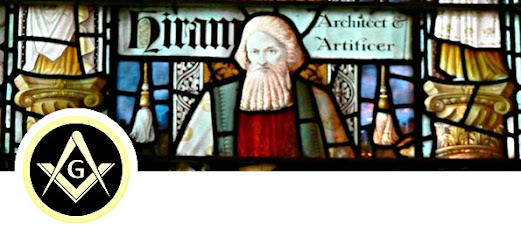
Articles les plus récents
LES SENTIERS D’HERMÈS







































